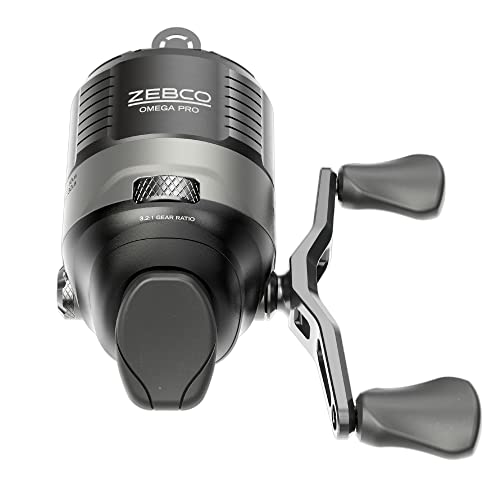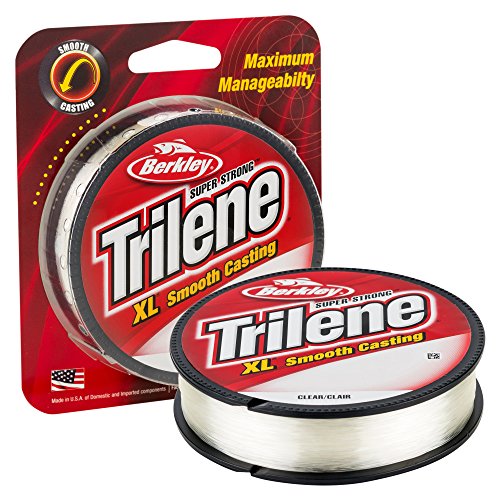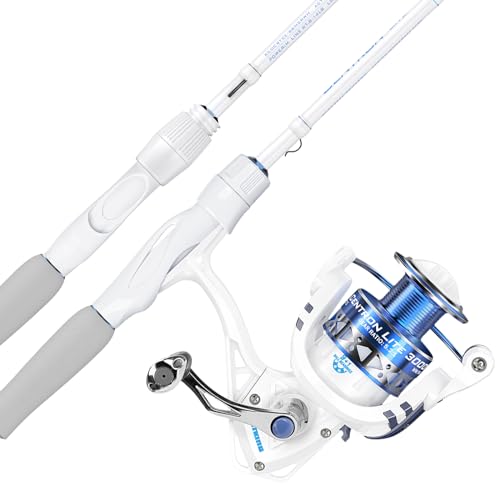Fishing while pregnant is generally considered safe, but there are certain precautions you should take. If you’re pregnant and considering going fishing, it’s important to be aware of the potential risks and take necessary precautions to ensure your safety and the safety of your baby.
While fishing itself is not typically harmful during pregnancy, there are some factors to consider. Exposure to certain harmful chemicals or toxins found in bodies of water, such as mercury or pesticides, can pose a risk to the developing fetus.
Additionally, physical exertion while fishing, especially in rough waters or extreme weather conditions, can also be dangerous. Before embarking on a fishing trip, consult with your healthcare provider to assess the potential risks and determine if it’s safe for you and your baby.

Credit: www.amazon.com
1. Potential Risks And Safety Measures
Understanding The Potential Risks Of Fishing During Pregnancy
Fishing can be a relaxing and enjoyable activity for many, but it’s important to consider the potential risks involved when you’re pregnant. Although there are no specific guidelines that prohibit fishing during pregnancy, it’s essential to take certain precautions to ensure the safety of both you and your unborn baby.
Here are some key points to keep in mind:
- Mercury contamination: Certain types of fish can contain high levels of mercury, which can be harmful to your developing baby’s nervous system. Predatory fish such as shark, swordfish, king mackerel, and tilefish are known to have higher levels of mercury. Consuming fish contaminated with mercury can lead to developmental delays and cognitive impairments in your little one.
- Parasitic infections: Freshwater fish may carry parasites such as tapeworm or roundworm, which can cause infections if ingested. While cooking fish thoroughly can kill these parasites, the risk of contamination remains if you consume raw or undercooked fish.
- Accidental falls or injuries: Fishing involves being on or near water, which can be slippery and unstable. It’s crucial to be cautious and avoid any activities that could put you at risk of falling or sustaining injuries while pregnant.
- Stress and fatigue: Fishing can be physically demanding and tiring, especially if you’re battling strong currents or reeling in heavy fish. Prolonged periods of strenuous activity can lead to excessive fatigue and stress, which are not ideal for a healthy pregnancy.
To minimize the potential risks associated with fishing during pregnancy, follow these safety measures:
- Consult with your healthcare provider: Before engaging in any physical activity, including fishing, it’s always best to consult with your healthcare provider. They can assess your individual health condition and provide personalized advice based on your pregnancy progress.
- Choose fish carefully: Opt for fish with lower levels of mercury, such as salmon, shrimp, catfish, and trout. These varieties are generally considered safe to consume in moderation during pregnancy. Limit your intake to two servings per week and avoid consuming fish caught in local waters unless you are certain they are free from contamination.
- Practice proper hygiene: To reduce the risk of parasitic infections, ensure proper hygiene when handling fish, cleaning your fishing equipment, and preparing your catch. Wash your hands thoroughly with soap and water after handling fish to eliminate any potential parasites or bacteria.
- Take frequent breaks: Avoid prolonged periods of physical exertion while fishing. Take frequent breaks, stay hydrated, and listen to your body’s signals. It’s important to prioritize your comfort and well-being during this sensitive time.
Remember, every pregnancy is unique, and what is safe for one woman may not be suitable for another. Ultimately, the decision to go fishing while pregnant is yours to make, but taking necessary precautions and following these guidelines can help ensure a safe and enjoyable experience for you and your baby.
2. Recommendations From Medical Professionals
Expert Opinions On Whether It Is Safe To Go Fishing During Pregnancy
When it comes to fishing during pregnancy, many expecting mothers wonder if it’s safe for them and their growing baby. While there is limited research specifically on this topic, medical professionals have provided recommendations to help minimize any potential risks.
Here are some expert opinions on whether it is safe to go fishing during pregnancy:
Guidelines Provided By Medical Professionals To Minimize Risks
- Check local advisories: Before planning a fishing trip, it’s essential to check local advisories for any warnings or restrictions regarding fish consumption. Certain fish may contain high levels of mercury or other contaminants that can be harmful to the baby’s development.
- Choose your fishing location wisely: Opt for fishing spots that are known to have cleaner waters and lower levels of pollution. Avoid areas where industrial waste or other pollutants may be present, as these can pose a greater risk to both mother and child.
- Limit exposure to chemicals: While fishing, pregnant women should be cautious about exposure to chemicals such as insect repellents, sunscreens, or cleaning agents. Opt for safer alternatives or use protective measures like wearing long sleeves and pants, as well as gloves.
- Stay hydrated and take breaks: Fishing can be physically demanding, so it’s important to stay hydrated and take regular breaks. Pregnant women should listen to their bodies and avoid overexertion, as excessive strain or fatigue can have adverse effects.
- Be mindful of balance and stability: As the pregnancy progresses, the body’s center of gravity shifts, making it important to maintain good balance while fishing. Use appropriate footwear and be cautious when navigating slippery surfaces or unstable terrains.
- Practice proper handling and preparation: If catching and consuming fish, pregnant women should ensure that they follow proper handling and preparation techniques. Cooking fish thoroughly helps eliminate potential bacteria and parasites that can cause foodborne illnesses.
- Stay aware of weather conditions: Pregnant women should stay informed about weather conditions, especially if planning to fish from a boat or in open waters. Stormy or rough weather can pose additional risks, increasing the chances of accidents or injuries.
Remember, every pregnancy is unique, and it’s essential to consult with a healthcare professional before engaging in any activity that may pose risks. They can provide personalized advice based on your specific health condition and pregnancy progress.
By following these recommendations from medical professionals, expecting mothers can enjoy fishing while minimizing potential risks to themselves and their precious little one.
3. Precautions And Preparations For Pregnant Anglers
Essential Precautions To Take Before Embarking On A Fishing Trip While Pregnant
When it comes to enjoying outdoor activities during pregnancy, fishing can be a relaxing and enjoyable option. However, it’s important for pregnant women to take certain precautions to ensure their safety and the well-being of their unborn child. Before casting your line, consider the following essential precautions:
- Consult with your healthcare provider: Before planning any fishing trip, it’s crucial to consult with your healthcare provider. They can provide personalized advice based on your specific pregnancy needs and any underlying medical conditions.
- Choose a safe location: Opt for fishing spots that are known to be safe and clean. Avoid areas with high pollution levels or where the water quality is questionable. Choose fishing spots that are easily accessible and have amenities such as restrooms nearby.
- Check local regulations: Familiarize yourself with the fishing regulations in your area. Make sure you have the necessary permits or licenses, and adhere to any restrictions or guidelines set by local authorities.
- Stay hydrated and protected: Maintain proper hydration by drinking plenty of water during your fishing trip. Protect your skin from the harsh sun by wearing a hat, sunglasses, and sunscreen with a high spf. Consider wearing long sleeves and pants to minimize sun exposure and protect yourself from insect bites.
- Be cautious with tackle and equipment: Take extra care when handling fishing tackle and equipment. Avoid using heavy or cumbersome gear that might strain your body. Consider using equipment with comfortable grips and lightweight materials to minimize the risk of accidents and strain.
Tips For Pregnant Women To Stay Comfortable And Avoid Unnecessary Strain
During pregnancy, it’s important to prioritize your comfort and avoid any unnecessary strain on your body. Here are some tips to help pregnant anglers stay comfortable and make the most of their fishing experience:
- Choose the right attire: Wear loose-fitting and comfortable clothing that allows for easy movement. Opt for breathable fabrics that will keep you cool and dry, especially during warmer weather. Consider wearing supportive shoes to protect your feet and maintain stability.
- Take frequent breaks: Plan regular breaks during your fishing trip to rest and relax. This will help prevent fatigue and reduce any discomfort. Use this time to stretch your muscles and change positions to alleviate any stiffness.
- Use appropriate seating arrangements: If possible, bring a comfortable folding chair or portable seat with extra support to sit on while fishing. This will provide added comfort and reduce strain on your back and joints.
- Practice proper lifting techniques: If you need to lift heavy items such as buckets or coolers, remember to use proper lifting techniques. Bend at your knees and lift with your legs, rather than straining your back. Avoid lifting anything too heavy or exerting excessive force.
- Listen to your body: Pay attention to any signs of discomfort or fatigue. If you feel tired or experience any pain, it’s important to take a break and rest. Avoid overexerting yourself and know your limits.
Remember, every pregnancy is different, and it’s essential to listen to your body and prioritize your well-being. By following these precautions and tips, pregnant anglers can enjoy a safe and pleasant fishing experience.
Conclusion
To sum it up, fishing can be a relaxing and enjoyable activity for pregnant women, as long as certain precautions are taken. By following safety guidelines, such as wearing a life jacket, staying hydrated, and avoiding rough waters, pregnant women can continue to embrace their love for fishing while keeping themselves and their babies safe.
Additionally, it is important to be mindful of the type of fish being caught and consumed, as some may contain high levels of mercury, which can be harmful to the developing fetus. Consulting with a healthcare provider before embarking on a fishing trip is always a wise choice, as they can provide personalized advice and address any concerns.
Ultimately, the decision to go fishing while pregnant should be based on individual circumstances and comfort levels. So, if you are an expectant mother who enjoys fishing, don’t hesitate to grab your fishing rod and create lasting memories on the water.




